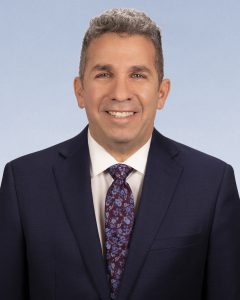Large Firm Service. Small Firm Attention.

SHARE
Wonder the Goldendoodle Prevails at the U.S. Supreme Court: An Important Decision for Parents & Students
Published February 23, 2017
by Marion Walsh Esq., & Arshi Pal, Graduate Law Clerk
To read our earlier entry, “Supreme Court Case on Service Dog Access to Schools has Broad Implications for All Students with Disabilities” click here.
On February 22, 2017, the United States Supreme Court, in Fry v. Napoleon Community Schools, rendered an important victory for parents and students. The Court ruled that parents need not exhaust remedies and bring a special education hearing before bringing a lawsuit in federal court for a school discrimination case.

In this case, the school district prohibited Ehlena Fry, a student with cerebral palsy, from bringing her trained service dog, a Golden doodle named Wonder, to join her in kindergarten. The school officials claimed the student’s Individualized Education Program (IEP) provided her with appropriate one-on-one support throughout the day, so Wonder was unnecessary. The parents, on the other hand, claimed that Wonder helped Ehlena with essential tasks such as helping her balance when she used her walker. Without the dog in school, the parents eventually removed the student from school and began homeschooling her.
The student’s parents sued the school district in federal court and sought declaratory and monetary relief for discriminating against Ehlena based on her disability, under the Americans with Disabilities Act (ADA) and Section 504 of the Rehabilitation Action of 1973 (Section 504). The district court granted the school districts’ motion to dismiss the suit and held that Individuals with Disabilities Education Act (“IDEA”) required the parents to first exhaust IDEA’s administrative remedies.The parents appealed to the Sixth Circuit Court of Appeals, which stated that exhaustion is required when the “alleged harms are educational in nature.” The Sixth Circuit viewed the alleged harms to the student as educational because “Wonder’s absence hurt her sense of independence and social confidence at school” and said that the parents had to exhaust the IDEA’s procedures.

The parents appealed to the Supreme Court. The Supreme Court granted certiorari (a writ of appeal) to address confusion in the federal appeals courts as to the scope of the IDEA’s exhaustion requirement. The central question before the Court was whether the plaintiffs were required to exhaust their administrative remedies, as provided for under the IDEA, even though they alleged a violation of the ADA and Section 504.
What is Exhaustion of Administrative Remedies?
Exhaustion of administrative remedies means following the procedures set by the IDEA to resolve disputes regarding the education of children with disabilities. This process begins with the filing of a due process complaint, which typically alleges the denial of a free appropriate public education (FAPE), as required by the IDEA. This allows the parties to participate in a resolution session. If the resolution session fails, the matter will proceed to a Due Process hearing before an Impartial Hearing Officer (IHO). An IHO does not have the power to award money damages for discrimination. The IHO’s role “is to enforce the child’s ‘substantive right’ to a FAPE.” An IHO can award compensatory relief for violations of Section 504 if he or she finds bad faith or gross misjudgment in the connection with the student’s education. Some states, such as New York, require a second tier of review and, in New York, then any party may request a State Review Officer (SRO) to review the IHO’s decision. The aggrieved party may then appeal to a state or federal court.
The Interplay between the Federal Laws
The IDEA’s purpose stands to ensure children with disabilities receive a FAPE. The IDEA provides procedures and safeguards to provide specifically tailored educational services for children with disabilities. On the other hand, the ADA and Section 504 prohibit discrimination which inhibits access to public institutions for people with disabilities of all ages. However, as the Court acknowledged, these three laws overlap and the same conduct may violate all three. The IDEA requires an exhaustion of administrative remedies but Section 504 and the ADA do not.
The Supreme Court’s Ruling
The Supreme Court, in a unanimous opinion by Justice Kagan, held that the law does not require exhaustion of IDEA administrative remedies when the core of the plaintiff’s complaint under the ADA, Section 504, or similar laws is something other than a denial of FAPE. The Court said, “in determining whether a suit indeed ‘seeks’ relief for such a denial, a court should look to the substance, or gravamen, of the plaintiff ’s complaint.”
The Court provided hypothetical questions to examine whether the gravamen of a complaint against a school concerns the denial of a FAPE, or instead addresses disability-based discrimination: 1) Whether the plaintiff could bring essentially the same claim if the alleged conduct had occurred at a public facility that was not a school—say, a public theater or library and 2) Whether an adult at the school—say, an employee or visitor—could bring essentially the same grievance. The Court explained that if the answer is yes to both questions and the complaint has not specifically alleged a denial of FAPE, then it is not about a denial of FAPE. In the alternative, if the answer is no, then the complaint is likely about a denial of FAPE. (Justices Alito and Thomas, while joining in the majority opinion, disagreed with these questions, as they thought they would confuse the lower courts).
The Court stated that another clue to determine whether the gravamen of the complaint is alleging the denial of FAPE rests in the history of the proceedings. If the parents started invoking the formal procedures provided by the IDEA, then it was more likely that the complaint was alleging a denial of FAPE. However, the Court cautioned that this analysis be done on a case-by-case basis because the parents may later realize that the school did fulfill its FAPE obligation and that the substance of the complaint is an allegation of discrimination.
What Does This Mean for the Frys and Other Families?
The Supreme Court stated that in this case the gravamen of the complaint against the school district was disability-based discrimination . The Frys could have essentially brought the same claim if the prohibition of Wonder had occurred at a public facility that was not a school. Also, any adult at the school could bring suit for barring the service animal. However, the Court did not decide whether the plaintiff’s complaint alleged a denial of FAPE, which would require exhaustion.
Thus, the Court vacated the judgment of the Court of Appeals and remanded the case for further proceedings consistent with the opinion. The student, Ehlena had moved on to another school district by this point, but she may be able to bring her suit for money damages, depending on what the Court of Appeals decides.
This Supreme Court decision does not mean that school districts have to grant every request of a student with a disability for permission to bring a service dog to school. However, this decision will make it easier for other parents and students to bring discrimination lawsuits for damages into federal court without exhausting administrative remedies—whether for access to education, for discrimination due to bullying and harassment, for discrimination due to barriers to communication, or other causes of action. This gives independent discrimination claims more power and force. While a federal trial will actually be longer, more complex and expensive than an administrative proceeding, parents will have the ability to proceed directly with discrimination claims for monetary relief, in federal court.
Parents should consult an experienced attorney to determine the best course of action for their claims, whether they have complaints of a denial of FAPE, discrimination under Section 504 or a combination of both.
Learn more about our special education advocacy or special needs planning services or Contact an Attorney with a question.
Was this article of interest to you? If so, please LIKE our Facebook Page by clicking here or sign up for our monthly newsletter.
Categories
Recent Posts
Explore In-Depth

Corporate & Securities

Elder Law & Estate Planning

Special Needs Planning

Special Education Advocacy


















